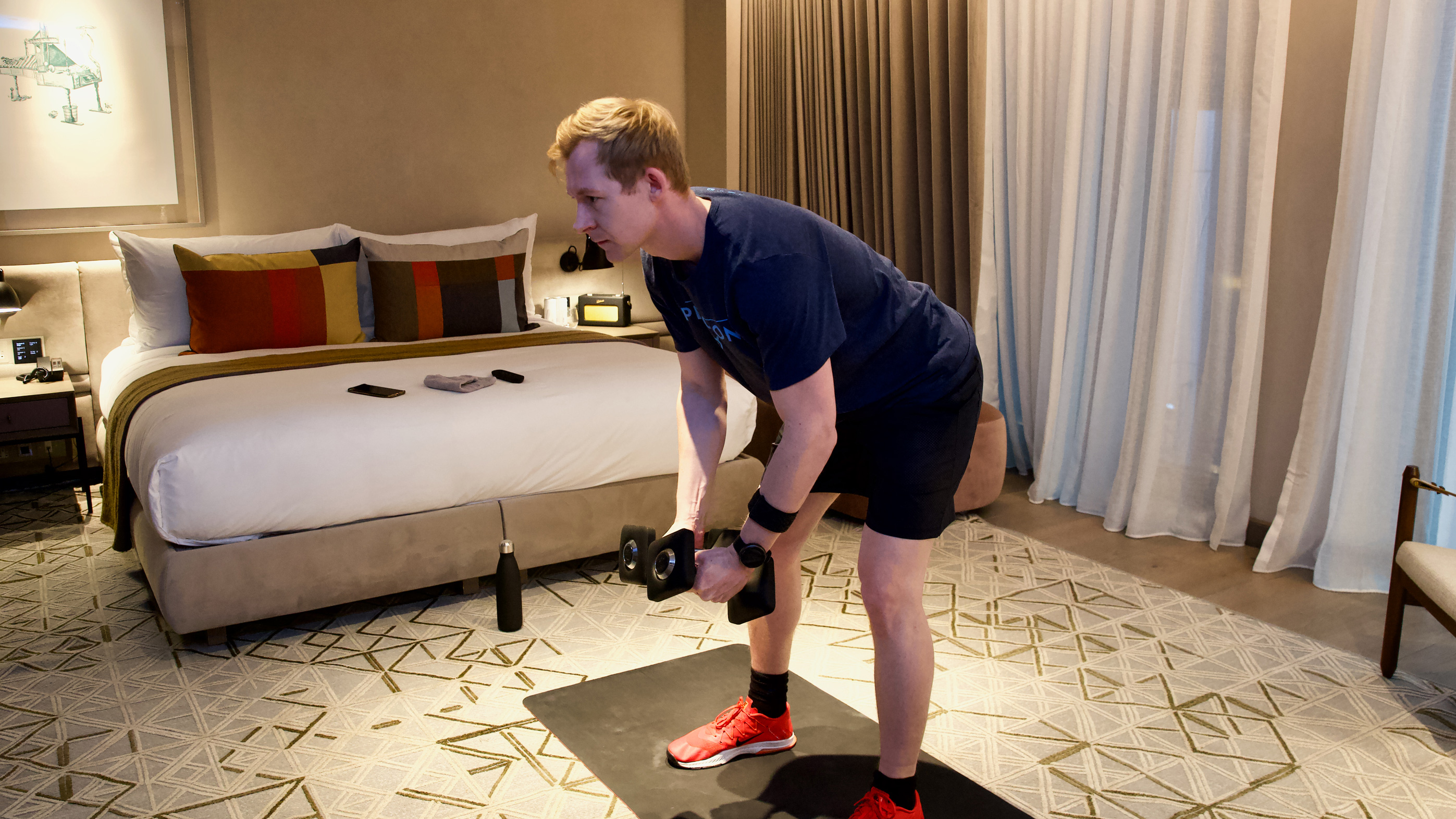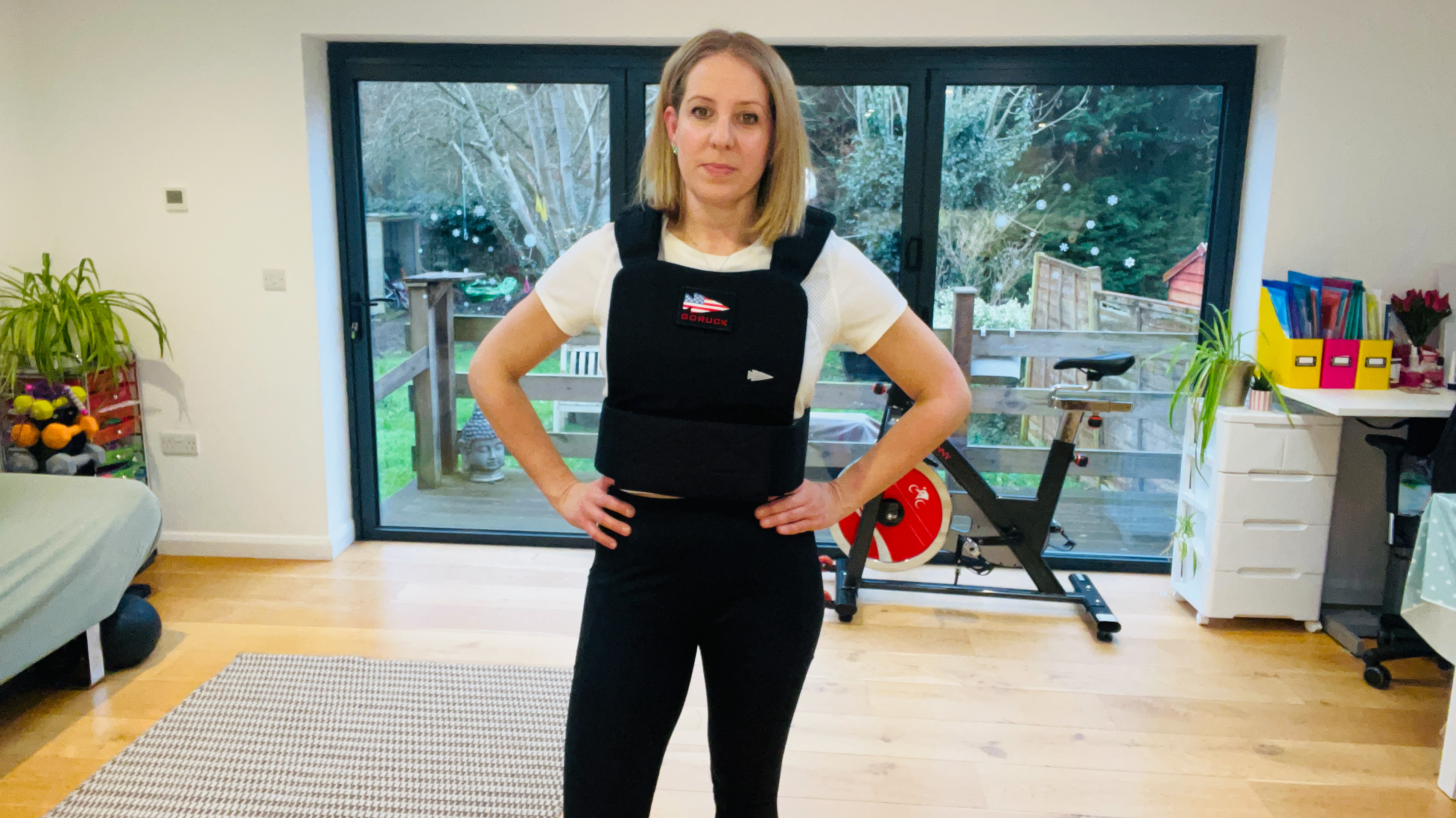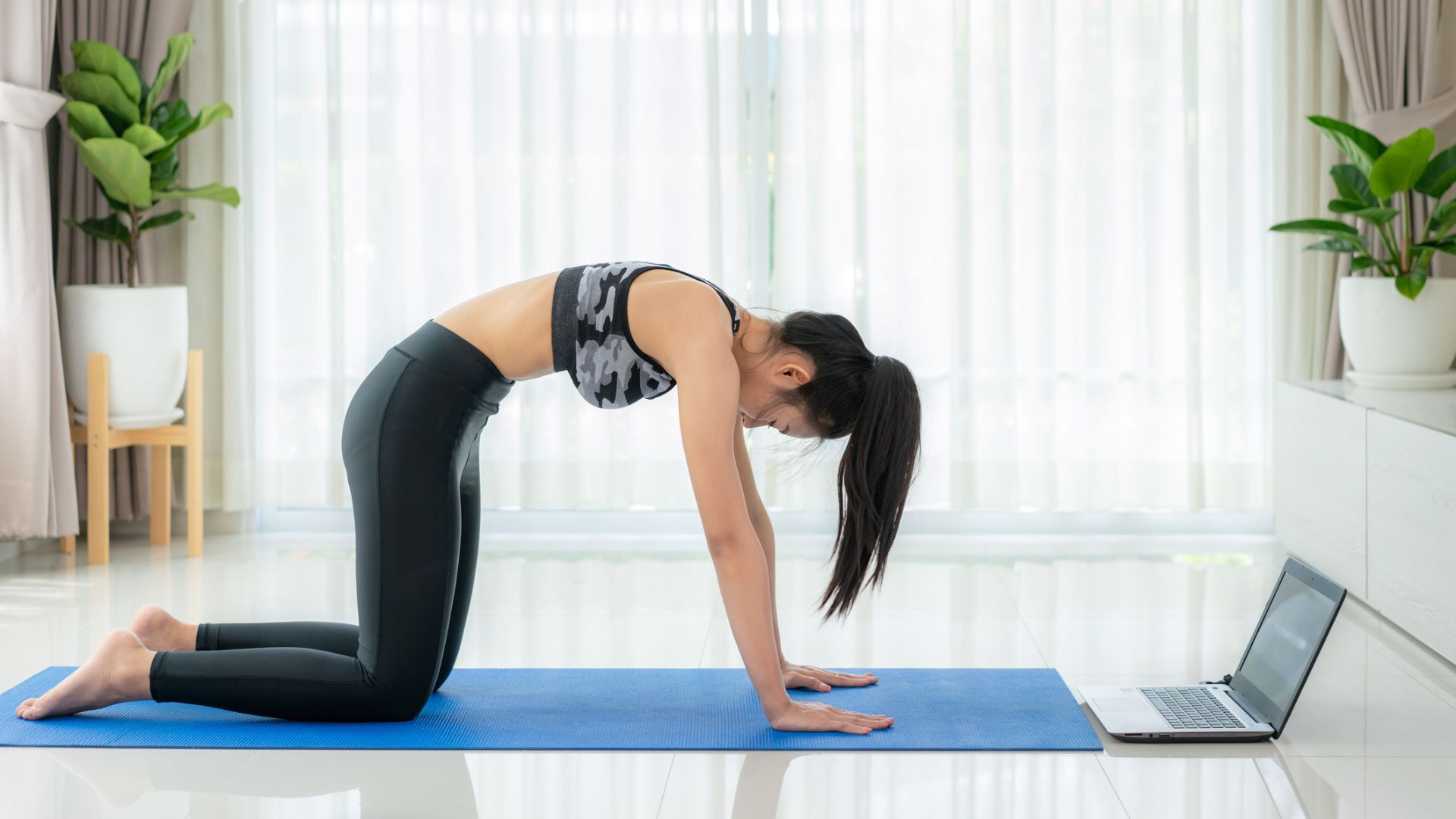Which is better: morning or evening workouts? I tried 1 month of both to find out
Our writer tried a month of both morning and evening workouts to find out which is better


Which is better for you: working out in the morning or evening? Whichever way you look at it, there are advantages, and disadvantages, to both.
Whether you choose to exercise by lacing up a pair of the best running shoes for men or the best running shoes for women, you prefer a session in the gym, or exercising wherever you are, such as in your bedroom or front room with a set of adjustable dumbbells, you can tailor your workout to match your schedule.
If you begin the working day early, you'll naturally have more time to exercise in the evenings. However, our evenings tend to get consumed with other things, like family commitments, friends, hobbies, cooking, or simply a lack of energy from the demands of the day.
Morning exercise, however, is seen as a quintessential go-getter's trait. Getting your workouts over and done with before your day's even begun requires (and creates) a certain level of discipline. However, the looming threat of a workday often means either your sleep is cut short, stalling your recovery, or your workout becomes shorter as you have to shower, change and go to work.
Morning workouts have been proven to spike the energy and alertness levels of older adults throughout the day, while exercise is known to release endorphins, which can help us start our days in a better mood. However, if you're getting up early for morning workouts and going to sleep at your regular time, you're cutting out some much-needed sleep. Do this too often and your mental and physical health will suffer.
Evening workouts have their benefits too, as one study published in the journal Applied Physiology, Nutrition, and Metabolism found healthy young men may take up to 20% longer to reach exhaustion in the evening than in the morning, so they have a greater capacity for work. You also have more time to work out. On the other hand, evening workouts cut into other post-work commitments.
So with no right answer obviously presenting itself here, I decided to try an experiment. I switched my normal pre-work morning gym workouts, which I had been doing for around six weeks, to evening workouts for a whole month. My aim was to monitor my energy, sleep, and workout performance to see which one I preferred. Here are three things I learned:
Get the Fit&Well Newsletter
Start your week with achievable workout ideas, health tips and wellbeing advice in your inbox.

1. I missed sessions more often
When I would do morning workouts, I had a routine: Monday, Wednesday, Friday. Chest, back, legs. Combined with a run on a weekend and the occasional yoga class, consistency was breeding success, because I had made my workouts a priority and did them at the start of my day.
When I transitioned to evening workouts, that changed. My workouts were no longer the first thing I was doing that day, and combined with other priorities, such as my hobbies and cooking dinners for myself and my partner. I love cooking, and I dislike the idea of meal-prepping more than two or three days of meals every week. I inevitably ended up missing a few sessions.
Even boring admin tasks, like cleaning or laundry, seemed to cut into my gym time until I learned how to fit them around my new schedule.
2. My workouts got longer
The first time I tried this little experiment, I hit the gym at 6:30 pm on a Monday, and I learned just how busy peak time at the gym could be. My local gym is well-equipped but very small, and I ended up queuing for equipment and swapping out moves because of how busy it was.
Likewise with running: when I ran after work, the roads were jam-packed with cars belching smoke and the parks were full of people walking home, and children playing after school.
Consequently, I ended up going to the gym at 8:30 pm, and working out until 10 pm or so. Quite late, but the rush was over by then and I had my choice of equipment. What's more, without the imminent demand of needing to change and dash off to work, I didn't have to squeeze a whole workout into 40 minutes. I could take my time between sets, incorporate some core work and stretching at the end of my sessions, and really enjoy my workout more.
My sleep and performance improved
As a result of having time to do these extra sets, I hit a few of my goals during that month. Most notably, I managed a clean bench press with the equivalent of my own body weight, unassisted by a spotter: my first "intermediate lifter" achievement. I ended up finding a weekly evening yoga class at the same gym: after three sessions working with the instructor there, I managed to nail the challenging "mermaid pose" for the first time, if only for a few seconds.
My routine would be to arrive home from work, cook, eat, do a little admin, go to the gym, and follow it up with a shake (my protein powder of choice, Optimum Nutrition’s Gold Standard blend, is top of the best protein powders for weight loss guide) before bed. So I still found time to incorporate most of the evening tasks I wanted to achieve once I found my balance.
I ended up sleeping deeper too: I struggled to go to bed earlier than 11 to offset getting up early for morning workouts, but hitting my regular bedtime after a tough workout filled the "Nightly Recharge" gauge on my Polar Vantage V2.
Morning or evening workouts: Verdict
Overall, I'm glad I made the switch, and I'm unlikely to go back to morning workouts. After trying a full month of both, evening workouts fit in better with my lifestyle and sleeping habits than morning workouts tend to do.
However, the real answer to the question "should you work out in the morning or evening?" is "do whatever works for you". If working out in the morning is going to help you stick to your goals better than a late evening session, the difference in performance is so minimal, according to science, that it's worth doing.
Fitness is a lifestyle that looks different for everyone. You might prefer to try a 10-minute workout as part of a 30-day HIIT challenge, and complete it first thing in the morning, or opt to walk 90 minutes a day and get your workouts in that way.
Matt Evans is an experienced health and fitness journalist and is currently Fitness and Wellbeing Editor at TechRadar, covering all things exercise and nutrition on Fit&Well's tech-focused sister site. Matt originally discovered exercise through martial arts: he holds a black belt in Karate and remains a keen runner, gym-goer, and infrequent yogi. His top fitness tip? Stretch.
-
 I’m a personal trainer and I tell all my clients to do this weighted workout to build muscle and bone health
I’m a personal trainer and I tell all my clients to do this weighted workout to build muscle and bone healthMake home training even more effective
By Maddy Biddulph Published
-
 I'm always stiff from sitting, so I tested out a 12-minute morning mobility routine to see if it could help
I'm always stiff from sitting, so I tested out a 12-minute morning mobility routine to see if it could helpThe short routine taught me a lot about my body
By Becks Shepherd Published